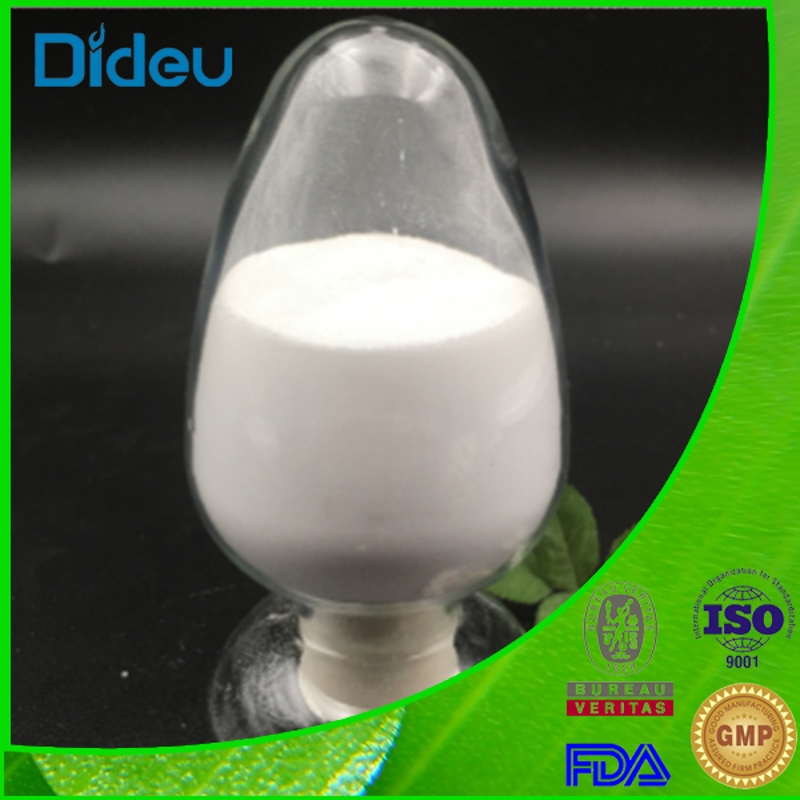-
Categories
-
Pharmaceutical Intermediates
-
Active Pharmaceutical Ingredients
-
Food Additives
- Industrial Coatings
- Agrochemicals
- Dyes and Pigments
- Surfactant
- Flavors and Fragrances
- Chemical Reagents
- Catalyst and Auxiliary
- Natural Products
- Inorganic Chemistry
-
Organic Chemistry
-
Biochemical Engineering
- Analytical Chemistry
- Cosmetic Ingredient
-
Pharmaceutical Intermediates
Promotion
ECHEMI Mall
Wholesale
Weekly Price
Exhibition
News
-
Trade Service
Responsible editor | Enzyme beauty TNF and IL-6 are key cytokines that regulate inflammation and autoimmune diseases
.
Although they can be used as important therapeutic targets for immune inflammatory diseases, the clinical therapeutic effects of their inhibitors in different diseases are not the same [1]
.
TNF inhibitors have excellent therapeutic effects in a variety of autoimmune diseases, including rheumatoid arthritis, ankylosing spondylitis, and psoriasis/psoriatic arthritis
.
In contrast, although IL-6/IL-6R inhibitors have a good effect on rheumatoid arthritis and "inflammatory factor storm", they are not effective in the treatment of psoriasis/psoriatic arthritis.
There is even a reaction to aggravate the condition [2]
.
This specific mechanism is still unclear
.
On July 2, 2021, Yang Keli's research group at Sun Yat-sen University's Zhongshan Medical College and Zhao Jijun's team from the Department of Rheumatology and Immunology, The First Affiliated Hospital of Sun Yat-sen University, published the title The RNase MCPIP3 promotes skin inflammation by orchestrating myeloid cytokine response in Nature Communications.
The research paper reported that the RNA endonuclease MCPIP3 promotes the molecular mechanism of psoriatic skin inflammation by regulating the IL-6 and TNF secreted by plasmacytoid dendritic cells (pDCs) and macrophages
.
C3H zinc finger proteins (CCCH zinc finger proteins) are a family of proteins that bind RNA and have powerful anti-inflammatory effects [3]
.
Its family members include TTP, Roquin, Regnase-1, etc.
, which can inhibit the function of macrophages and T cells by degrading cytokine mRNA
.
The team of Yang Keli and Zhao Jijun found that one of the family members, MCPIP3, is specifically and highly expressed on human and mouse pDCs and macrophages; and the expression level of MCPIP3 in inflamed skin is positively correlated with the severity of psoriasis patients
.
Plasmacytoid dendritic cells (pDCs) are unique immune cells that secrete large amounts of type I interferons [4]
.
The dysfunction of pDCs plays an important role in the occurrence and progression of many autoimmune diseases, such as systemic lupus erythematosus (SLE) [5]
.
However, the mechanism of pDCs and type I interferon pathway in psoriasis is still very controversial
.
The team of Yang Keli and Zhao Jijun found that pDCs lacking MCPIP3 secrete excessive IL-6
.
In pDCs, MCPIP3 can regulate IL-6 in two ways: directly degrade IL-6 mRNA and degrade IκBζ and indirectly regulate IL-6
.
In the psoriasis model induced by imiquimod, the symptoms of MCPIP3-deficient mice were significantly reduced
.
IL-6 secreted by pDCs can inhibit TNF and IL-12 secreted by macrophages, and subcutaneous injection of excessive IL-6 can alleviate skin inflammation in psoriasis
.
It is generally believed that pDCs are the "criminals" of autoimmune diseases.
However, this paper found for the first time that pDCs can alleviate skin inflammation in psoriasis
.
The team of Yang Keli and Zhao Jijun further discovered that MCPIP3 can also promote the secretion of TNF and IL-12 from macrophages.
.
In macrophages, MCPIP3 can degrade Regnase-1 and indirectly promote TNF secretion
.
In addition to degrading TNF mRNA, Regnase-1 can also degrade MCPIP3, maintaining mutual regulation and balance among family members
.
Previous studies have agreed that the C3H zinc finger protein family has only anti-inflammatory effects.
This paper found for the first time that its family member MCPIP3 has a pro-inflammatory effect
.
This study reveals for the first time the mechanism by which IL-6 secreted by pDCs inhibits autoimmune diseases and provides a potential therapeutic target for psoriasis
.
Professor Yang Keli, Zhongshan Medical College of Sun Yat-sen University, and Professor Zhao Jijun, Department of Rheumatology and Immunology, The First Affiliated Hospital of Sun Yat-sen University, are the co-corresponding authors of this article
.
Li Bo, a doctoral student at Zhongshan School of Medicine, Sun Yat-sen University, is the first author of this article
.
Original link: https:// Platemaker: Eleven References 1 Kalliolias, GD & Ivashkiv, LB TNF biology, pathogenic mechanisms and emerging therapeutic strategies.
Nat Rev Rheumatol 12, 49-62, doi:10.
1038/nrrheum.
2015.
169 (2016).
2 Tanaka, Y.
& Martin Mola, E.
IL-6 targeting compared to TNF targeting in rheumatoid arthritis: studies of olokizumab, sarilumab and sirukumab.
Ann Rheum Dis 73, 1595-1597, doi:10.
1136/annrheumdis-2013-205002 (2014).
3 Fu, M.
& Blackshear, PJ RNA-binding proteins in immune regulation: a focus on CCCH zinc finger proteins.
Nat Rev Immunol 17, 130-143, doi:10.
1038/nri.
2016.
129 (2017).
4 Colonna, M.
, Trinchieri, G.
& Liu, YJ Plasmacytoid dendritic cells in immunity.
Nat Immunol 5, 1219-1226, doi:10.
1038/ni1141 (2004 ).
5 Ganguly, D.
, Haak, S.
, Sisirak, V.
& Reizis, B.
The role of dendritic cells in autoimmunity.
Nat Rev Immunol 13, 566-577, doi:10.
1038/nri3477 (2013).
Reprinting instructions [Non-original articles] The copyright of this article belongs to the author of the article.
Personal forwarding and sharing are welcome.
Reprinting is prohibited without permission , The author has all legal rights, offenders must be investigated
.
.
Although they can be used as important therapeutic targets for immune inflammatory diseases, the clinical therapeutic effects of their inhibitors in different diseases are not the same [1]
.
TNF inhibitors have excellent therapeutic effects in a variety of autoimmune diseases, including rheumatoid arthritis, ankylosing spondylitis, and psoriasis/psoriatic arthritis
.
In contrast, although IL-6/IL-6R inhibitors have a good effect on rheumatoid arthritis and "inflammatory factor storm", they are not effective in the treatment of psoriasis/psoriatic arthritis.
There is even a reaction to aggravate the condition [2]
.
This specific mechanism is still unclear
.
On July 2, 2021, Yang Keli's research group at Sun Yat-sen University's Zhongshan Medical College and Zhao Jijun's team from the Department of Rheumatology and Immunology, The First Affiliated Hospital of Sun Yat-sen University, published the title The RNase MCPIP3 promotes skin inflammation by orchestrating myeloid cytokine response in Nature Communications.
The research paper reported that the RNA endonuclease MCPIP3 promotes the molecular mechanism of psoriatic skin inflammation by regulating the IL-6 and TNF secreted by plasmacytoid dendritic cells (pDCs) and macrophages
.
C3H zinc finger proteins (CCCH zinc finger proteins) are a family of proteins that bind RNA and have powerful anti-inflammatory effects [3]
.
Its family members include TTP, Roquin, Regnase-1, etc.
, which can inhibit the function of macrophages and T cells by degrading cytokine mRNA
.
The team of Yang Keli and Zhao Jijun found that one of the family members, MCPIP3, is specifically and highly expressed on human and mouse pDCs and macrophages; and the expression level of MCPIP3 in inflamed skin is positively correlated with the severity of psoriasis patients
.
Plasmacytoid dendritic cells (pDCs) are unique immune cells that secrete large amounts of type I interferons [4]
.
The dysfunction of pDCs plays an important role in the occurrence and progression of many autoimmune diseases, such as systemic lupus erythematosus (SLE) [5]
.
However, the mechanism of pDCs and type I interferon pathway in psoriasis is still very controversial
.
The team of Yang Keli and Zhao Jijun found that pDCs lacking MCPIP3 secrete excessive IL-6
.
In pDCs, MCPIP3 can regulate IL-6 in two ways: directly degrade IL-6 mRNA and degrade IκBζ and indirectly regulate IL-6
.
In the psoriasis model induced by imiquimod, the symptoms of MCPIP3-deficient mice were significantly reduced
.
IL-6 secreted by pDCs can inhibit TNF and IL-12 secreted by macrophages, and subcutaneous injection of excessive IL-6 can alleviate skin inflammation in psoriasis
.
It is generally believed that pDCs are the "criminals" of autoimmune diseases.
However, this paper found for the first time that pDCs can alleviate skin inflammation in psoriasis
.
The team of Yang Keli and Zhao Jijun further discovered that MCPIP3 can also promote the secretion of TNF and IL-12 from macrophages.
.
In macrophages, MCPIP3 can degrade Regnase-1 and indirectly promote TNF secretion
.
In addition to degrading TNF mRNA, Regnase-1 can also degrade MCPIP3, maintaining mutual regulation and balance among family members
.
Previous studies have agreed that the C3H zinc finger protein family has only anti-inflammatory effects.
This paper found for the first time that its family member MCPIP3 has a pro-inflammatory effect
.
This study reveals for the first time the mechanism by which IL-6 secreted by pDCs inhibits autoimmune diseases and provides a potential therapeutic target for psoriasis
.
Professor Yang Keli, Zhongshan Medical College of Sun Yat-sen University, and Professor Zhao Jijun, Department of Rheumatology and Immunology, The First Affiliated Hospital of Sun Yat-sen University, are the co-corresponding authors of this article
.
Li Bo, a doctoral student at Zhongshan School of Medicine, Sun Yat-sen University, is the first author of this article
.
Original link: https:// Platemaker: Eleven References 1 Kalliolias, GD & Ivashkiv, LB TNF biology, pathogenic mechanisms and emerging therapeutic strategies.
Nat Rev Rheumatol 12, 49-62, doi:10.
1038/nrrheum.
2015.
169 (2016).
2 Tanaka, Y.
& Martin Mola, E.
IL-6 targeting compared to TNF targeting in rheumatoid arthritis: studies of olokizumab, sarilumab and sirukumab.
Ann Rheum Dis 73, 1595-1597, doi:10.
1136/annrheumdis-2013-205002 (2014).
3 Fu, M.
& Blackshear, PJ RNA-binding proteins in immune regulation: a focus on CCCH zinc finger proteins.
Nat Rev Immunol 17, 130-143, doi:10.
1038/nri.
2016.
129 (2017).
4 Colonna, M.
, Trinchieri, G.
& Liu, YJ Plasmacytoid dendritic cells in immunity.
Nat Immunol 5, 1219-1226, doi:10.
1038/ni1141 (2004 ).
5 Ganguly, D.
, Haak, S.
, Sisirak, V.
& Reizis, B.
The role of dendritic cells in autoimmunity.
Nat Rev Immunol 13, 566-577, doi:10.
1038/nri3477 (2013).
Reprinting instructions [Non-original articles] The copyright of this article belongs to the author of the article.
Personal forwarding and sharing are welcome.
Reprinting is prohibited without permission , The author has all legal rights, offenders must be investigated
.







